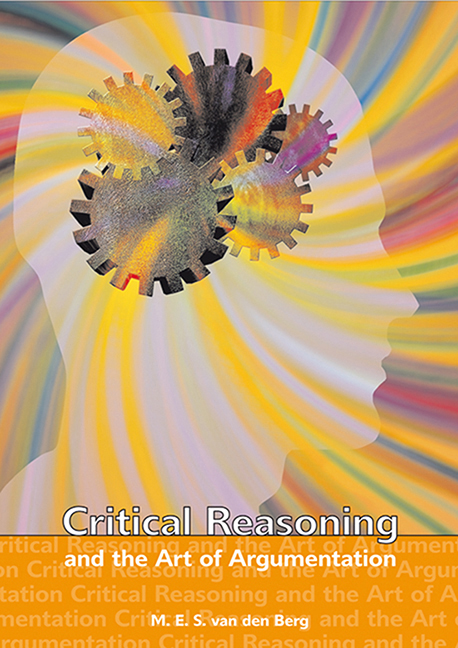Book contents
- Frontmatter
- Contents
- Preface
- CHAPTER 1 What is critical reasoning?
- CHAPTER 2 Obstacles to clear thinking: Preconceived ideas and fallacies
- CHAPTER 3 Working with arguments
- CHAPTER 4 How to analyse arguments
- CHAPTER 5 Definitions, counterexamples and counterarguments
- CHAPTER 6 Evaluating arguments
- CHAPTER 7 Applying your knowledge and skills to the evaluation of arguments
- CHAPTER 8 Constructing arguments and writing argumentative essays
- References
- Glossary
- Index
CHAPTER 1 - What is critical reasoning?
Published online by Cambridge University Press: 20 February 2020
- Frontmatter
- Contents
- Preface
- CHAPTER 1 What is critical reasoning?
- CHAPTER 2 Obstacles to clear thinking: Preconceived ideas and fallacies
- CHAPTER 3 Working with arguments
- CHAPTER 4 How to analyse arguments
- CHAPTER 5 Definitions, counterexamples and counterarguments
- CHAPTER 6 Evaluating arguments
- CHAPTER 7 Applying your knowledge and skills to the evaluation of arguments
- CHAPTER 8 Constructing arguments and writing argumentative essays
- References
- Glossary
- Index
Summary
What is the use of philosophy, if all it does is enable you to talk … about some abstruse questions of logic, etc., and if it does not improve your thinking about the important questions of everyday life?
Ludwig WittgensteinEvery day we are bombarded with arguments, arguments that are often based on fallacious reasoning with the aim of manipulating our thinking and behaviour. We encounter these arguments in our reading, on the radio, on television, via the internet and, of course, in advertisements.
However, the ever-increasing complexity of information technology, the perplexity of human interactions, the diversity of societies in South Africa and globally, and the demands of the workplace require people who can think critically and who can make informed decisions.
It is important to critically examine the way in which we judge, evaluate and act, because the decisions we make may have an important influence not only on defining, experiencing and presenting ourselves, but also on the way we perceive and influence other people, shape the world and touch the lives of others.
The aim of this chapter is to explain what critical reasoning is and to explore some basic critical reasoning competencies. We will unpack these critical reasoning competencies to emphasise the importance of critical self-reflection in our quest for clear thinking. We will begin to understand how societal values, preconceived ideas and cultural attitudes cloud our perceptions and attitudes and stand in the way of clear thinking.
Introduction to critical reasoning
Critical reasoning is not a new field of study – it is as old as philosophy itself. The history of the quest for wisdom and critical self-reflection goes back as far as the ancient Ifa (Yoruba) oral philosophy associated with Orunmila (c 4000 BC), the prophet of the Ifa religion and father of African philosophy; the pre-Socratic philosophers such as Thales (c 625–545 BC), Anaximander (c 610–547 BC), Pythagoras (c 578–510) and Heraclitus (c 540–480 BC); the ancient Indian philosophers such as Mahavira (born 599 BC) and Buddha (born 563 BC); the ancient Chinese philosophers such as Lao Tzu (c 600 BC) and Confucius (556–479 BC); and the Greek philosophers such as Socrates (470–399 BC), Plato (427–347 BC) and Aristotle (384–322 BC).
- Type
- Chapter
- Information
- Critical Reasoning and the Art of Argumentation , pp. 1 - 8Publisher: University of South AfricaPrint publication year: 2010



